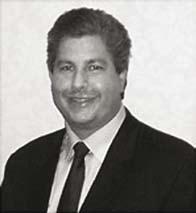| B12 Smart - The Importance of Vitamin B12 to the Gastric Bypass Patient by Shawn Garber, MD, FACS, and Sharon George, MS, RD, CDN  Gastric bypass patients have certain rules they need to follow in order to maintain great health after surgery.If you are a gastric bypass patient,reaching your nutritional goals is of utmost importance. Surgeons and dietitians recommend following a daily vitamin and mineral supplementation regimen to help sustain optimal health.Each vitamin has a different job within the human body, and bypass surgery patients run the risk of not having the correct balance of vitamins and minerals in their bodies because of their inability to absorb these nutrients well. Routine evaluations and lab work will help your professional team determine if you are at risk for deficiencies. Gastric bypass patients have certain rules they need to follow in order to maintain great health after surgery.If you are a gastric bypass patient,reaching your nutritional goals is of utmost importance. Surgeons and dietitians recommend following a daily vitamin and mineral supplementation regimen to help sustain optimal health.Each vitamin has a different job within the human body, and bypass surgery patients run the risk of not having the correct balance of vitamins and minerals in their bodies because of their inability to absorb these nutrients well. Routine evaluations and lab work will help your professional team determine if you are at risk for deficiencies.One of the most important vitamins for your body is the water-soluble vitamin B12 (cobalamin), a member of the vitamin B complex required for the metabolism, synthesis of red blood cells, maintenance of the nervous system including the brain and spinal cord, production of DNA for healthy cell formation,and growth and development in children. Development of deficiency is a very slow process,often starting with subtle signs and symptoms in the early stages and progressing to irreversible neurological damage in late stages if undiagnosed and untreated. In contrast to the other water-soluble vitamins, B12is not excreted quickly in the urine, but rather accumulates and is stored mostly in the liver(approximately 80 percent), kidney and other body tissues. As a result, deficiency may not show itself until after five or six years of a diet deficient in this vitamin,when the stores in the liver are depleted.  In order to absorb vitamin B12, a person needs the ?intrinsic factor,? a protein produced in the stomach. Roux-en-Y (RNY)patients have more than 80 percent of their stomachs bypassed,which reduces or eliminates their ability to make the intrinsic factor. Without it, the body cannot absorb vitamin B12, even if foods rich in the vitamin are consumed. Unlike other water soluble vitamins that are absorbed almost immediately, B12needs about three hours to be absorbed. B12 deficiency has been reported to occur in more than 30percent of patients one to nine years after RNY gastric bypass surgery. Twenty to 30 percent of people over the age of 50 do not produce enough stomach acid,and B12 absorption is reduced.If you are over 50 and have had bypass surgery, you may be at greater risk. Excessive alcohol use can also impair the absorption of this vitamin. What are the warning signs of deficiency? Some of the common and more severe symptoms are fatigue, nausea, weakness,constipation, unsteady gait,changes in mental status, memory loss, numbness and tingling in the arms or legs, shortness of breath, depression and hallucinations. However, it is important to know that many people withB12 deficiency do not exhibit any symptoms at all. Close follow-up with your surgeon postoperatively is crucial. What are the best sources of vitamin B12? Dietary sources that are reliable and unfortified are meat, dairy products, salmon,liver, cheddar cheese and eggs.The current nutritional consensus is that animal products are the best source of vitamin B12, as there are no optimal vegetable sources. The reference nutrient intake (RNI), formally known as the Recommended Daily Allowance, is the amount of a nutrient that is enough for at least 97 percent of the population. The RNI of vitaminB12 is two micrograms (two millionths of a gram) daily. This is not difficult to consume: for example, three ounces of cooked salmon provides just over five micrograms. Your dietitian can help you select appropriate foods that are rich in this vitamin. Vitamins are easily destroyed and washed out during food preparation and storage. Refrigerate fresh produce and keep milk and grains away from strong light to get the most vitamins out of your food. If you take vitamin supplements, store them at room temperature in a dry place that is moisture free. Fortunately, supplementation with vitamin B12 is safe, efficient and FDA approved. The types of B12 treatments available are intra-muscular injections, oral sublingual tablets (tablets that dissolve under the tongue) and nasal inhalers. Your surgeon will assess the various ways to raise your B12 blood levels in your body and determine which is best for you. It is important to note that vitamin B12 has a very low toxicity and high intakes are not thought to be dangerous. Follow up with your professionals is your best defense against vitamin and mineral deficiencies after gastric bypass surgery.  Shawn Garber, MD, FACS, completed his general surgery training at Long Island Jewish Medical Center and went on to complete a laparoscopic surgery fellowship at the The George Washington University Medical Center with world famous laparoscopic surgeon Dr. Jonathan Sackier. Dr.Garber then trained with Dr. Alan Wittgrove (known for operating on singer Carnie Wilson) mastering the laparoscopic gastric bypass procedure for obesity. He has performed more than 2000 bariatric procedures. Shawn Garber, MD, FACS, completed his general surgery training at Long Island Jewish Medical Center and went on to complete a laparoscopic surgery fellowship at the The George Washington University Medical Center with world famous laparoscopic surgeon Dr. Jonathan Sackier. Dr.Garber then trained with Dr. Alan Wittgrove (known for operating on singer Carnie Wilson) mastering the laparoscopic gastric bypass procedure for obesity. He has performed more than 2000 bariatric procedures.Sharon George, MS, RD, CDN, earned bachelors degrees in psychology and nutrition. She also obtained her Master?s degree, with honors, in Community Counseling from Hofstra University. Sharon has worked as a clinical Registered Dietician at Mercy Medical Center, St. Francis Hospital, and Winthrop University Hospital. She specializes in bariatrics and currently works with Dr. Shawn Garber. She has been a guest lecturer for the American Heart Association and has written articles appearing in several professional publications. |

 email to a friend
email to a friend printer-friendly version
printer-friendly version